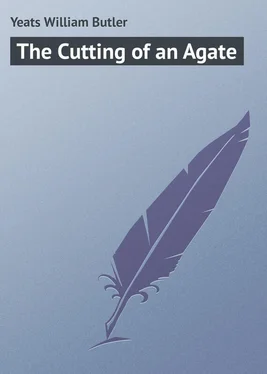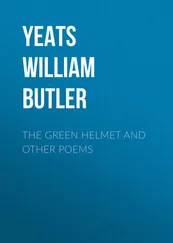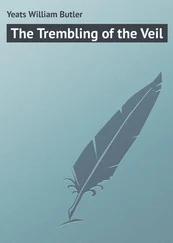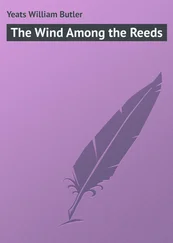William Yeats - The Cutting of an Agate
Здесь есть возможность читать онлайн «William Yeats - The Cutting of an Agate» — ознакомительный отрывок электронной книги совершенно бесплатно, а после прочтения отрывка купить полную версию. В некоторых случаях можно слушать аудио, скачать через торрент в формате fb2 и присутствует краткое содержание. Жанр: foreign_prose, на английском языке. Описание произведения, (предисловие) а так же отзывы посетителей доступны на портале библиотеки ЛибКат.
- Название:The Cutting of an Agate
- Автор:
- Жанр:
- Год:неизвестен
- ISBN:нет данных
- Рейтинг книги:4 / 5. Голосов: 1
-
Избранное:Добавить в избранное
- Отзывы:
-
Ваша оценка:
- 80
- 1
- 2
- 3
- 4
- 5
The Cutting of an Agate: краткое содержание, описание и аннотация
Предлагаем к чтению аннотацию, описание, краткое содержание или предисловие (зависит от того, что написал сам автор книги «The Cutting of an Agate»). Если вы не нашли необходимую информацию о книге — напишите в комментариях, мы постараемся отыскать её.
The Cutting of an Agate — читать онлайн ознакомительный отрывок
Ниже представлен текст книги, разбитый по страницам. Система сохранения места последней прочитанной страницы, позволяет с удобством читать онлайн бесплатно книгу «The Cutting of an Agate», без необходимости каждый раз заново искать на чём Вы остановились. Поставьте закладку, и сможете в любой момент перейти на страницу, на которой закончили чтение.
Интервал:
Закладка:
William Butler Yeats
The Cutting of an Agate
PREFACE
When I wrote the essay on Edmund Spenser the company of Irish players who have now their stage at the Abbey Theatre in Dublin had been founded, but gave as yet few performances in a twelvemonth. I could let my thought stray where it would, and even give a couple of summers to The Faerie Queene ; while for some ten years now I have written little verse and no prose that did not arise out of some need of those players or some thought suggested by their work, or was written in the defence of some friend whose life has been a part of the movement of events which is creating a new Ireland unintelligible to an old Ireland that watches with anger or indifference. The detailed defence of plays and players, published originally in Samhain , the occasional periodical of the theatre, and now making some three hundred pages of Mr. Bullen’s collected edition of my writings, is not here, but for the most part an exposition of principles, whether suggested by my own work or by the death of friend or fellow-worker, that, intended for no great public, has been printed and published from a Hand Press which my sisters manage at Dundrum with the help of the village girls. I have been busy with a single art, that of the theatre, of a small, unpopular theatre; and this art may well seem to practical men, busy with some programme of industrial or political regeneration, of no more account than the shaping of an agate; and yet in the shaping of an agate, whether in the cutting or the making of the design, one discovers, if one have a speculative mind, thoughts that seem important and principles that may be applied to life itself, and certainly if one does not believe so, one is but a poor cutter of so hard a stone.
W. B. YEATS.August, 1912.
THOUGHTS ON LADY GREGORY’S TRANSLATIONS
I
CUCHULAIN AND HIS CYCLE
The Church when it was most powerful taught learned and unlearned to climb, as it were, to the great moral realities through hierarchies of Cherubim and Seraphim, through clouds of Saints and Angels who had all their precise duties and privileges. The story-tellers of Ireland, perhaps of every primitive country, imagined as fine a fellowship, only it was to the æsthetic realities they would have had us climb. They created for learned and unlearned alike, a communion of heroes, a cloud of stalwart witnesses; but because they were as much excited as a monk over his prayers, they did not think sufficiently about the shape of the poem and the story. We have to get a little weary or a little distrustful of our subject, perhaps, before we can lie awake thinking how to make the most of it. They were more anxious to describe energetic characters, and to invent beautiful stories, than to express themselves with perfect dramatic logic or in perfectly-ordered words. They shared their characters and their stories, their very images, with one another, and handed them down from generation to generation; for nobody, even when he had added some new trait, or some new incident, thought of claiming for himself what so obviously lived its own merry or mournful life. The maker of images or worker in mosaic who first put Christ upon a cross would have as soon claimed as his own a thought which was perhaps put into his mind by Christ himself. The Irish poets had also, it may be, what seemed a supernatural sanction, for a chief poet had to understand not only innumerable kinds of poetry, but how to keep himself for nine days in a trance. Surely they believed or half believed in the historical reality of even their wildest imaginations. And so soon as Christianity made their hearers desire a chronology that would run side by side with that of the Bible, they delighted in arranging their Kings and Queens, the shadows of forgotten mythologies, in long lines that ascended to Adam and his Garden. Those who listened to them must have felt as if the living were like rabbits digging their burrows under walls that had been built by Gods and Giants, or like swallows building their nests in the stone mouths of immense images, carved by nobody knows who. It is no wonder that one sometimes hears about men who saw in a vision ivy-leaves that were greater than shields, and blackbirds whose thighs were like the thighs of oxen. The fruit of all those stories, unless indeed the finest activities of the mind are but a pastime, is the quick intelligence, the abundant imagination, the courtly manners of the Irish country-people.
William Morris came to Dublin when I was a boy, and I had some talk with him about these old stories. He had intended to lecture upon them, but ‘the ladies and gentlemen’ – he put a communistic fervour of hatred into the phrase – knew nothing about them. He spoke of the Irish account of the battle of Clontarf and of the Norse account, and said, that one saw the Norse and Irish tempers in the two accounts. The Norseman was interested in the way things are done, but the Irishman turned aside, evidently well pleased to be out of so dull a business, to describe beautiful supernatural events. He was thinking, I suppose, of the young man who came from Aoibhill of the Grey Rock, giving up immortal love and youth, that he might fight and die by Murrough’s side. He said that the Norseman had the dramatic temper, and the Irishman had the lyrical. I think I should have said with Professor Ker, epical and romantic rather than dramatic and lyrical, but his words, which have so great an authority, mark the distinction very well, and not only between Irish and Norse, but between Irish and other un-Celtic literatures. The Irish story-teller could not interest himself with an unbroken interest in the way men like himself burned a house, or won wives no more wonderful than themselves. His mind constantly escaped out of daily circumstance, as a bough that has been held down by a weak hand suddenly straightens itself out. His imagination was always running to Tir-nan-og, to the Land of Promise, which is as near to the country-people of to-day as it was to Cuchulain and his companions. His belief in its nearness, cherished in its turn the lyrical temper, which is always athirst for an emotion, a beauty which cannot be found in its perfection upon earth, or only for a moment. His imagination, which had not been able to believe in Cuchulain’s greatness, until it had brought the Great Queen, the red-eyebrowed goddess, to woo him upon the battlefield, could not be satisfied with a friendship less romantic and lyrical than that of Cuchulain and Ferdiad, who kissed one another after the day’s fighting, or with a love less romantic and lyrical than that of Baile and Aillinn, who died at the report of one another’s deaths, and married in Tir-nan-og. His art, too, is often at its greatest when it is most extravagant, for he only feels himself among solid things, among things with fixed laws and satisfying purposes, when he has reshaped the world according to his heart’s desire. He understands as well as Blake that the ruins of time build mansions in eternity, and he never allows anything, that we can see and handle, to remain long unchanged. The characters must remain the same, but the strength of Fergus may change so greatly, that he, who a moment before was merely a strong man among many, becomes the master of Three Blows that would destroy an army, did they not cut off the heads of three little hills instead, and his sword, which a fool had been able to steal out of its sheath, has of a sudden the likeness of a rainbow. A wandering lyric moon must knead and kindle perpetually that moving world of cloaks made out of the fleeces of Mananan; of armed men who change themselves into sea-birds; of goddesses who become crows; of trees that bear fruit and flower at the same time.
Читать дальшеИнтервал:
Закладка:
Похожие книги на «The Cutting of an Agate»
Представляем Вашему вниманию похожие книги на «The Cutting of an Agate» списком для выбора. Мы отобрали схожую по названию и смыслу литературу в надежде предоставить читателям больше вариантов отыскать новые, интересные, ещё непрочитанные произведения.
Обсуждение, отзывы о книге «The Cutting of an Agate» и просто собственные мнения читателей. Оставьте ваши комментарии, напишите, что Вы думаете о произведении, его смысле или главных героях. Укажите что конкретно понравилось, а что нет, и почему Вы так считаете.












